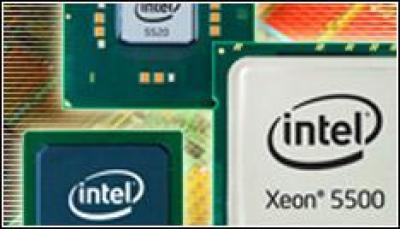Semiconductor Market Declines But Beats Predictions

2009 has been a tough year for the semiconductor market, but according to one industry watcher, it has declined less than previously predicted
Market research firm iSuppli has confirmed that 2009 has been one of its worst years ever for the semiconductor industry, but it wasn’t as bad as it could have been.
iSuppli analysts said 2009 revenue will fall by 12.4 percent – more than $32 billion (£19.3 billion) – over 2008, and only one of the chip suppliers in the top 10 will see a growth year. However, given what happened in the last quarter of 2008 and the first quarter this year, such a decline isn’t too bad. Earlier in the year, iSuppli had projected a drop of more than 20 percent.
“There was little room for anything but pessimism after the industry suffered a sequential revenue decline of 21.4 percent in the fourth quarter of 2008 and an 18 percent drop in the first quarter of 2009,” iSuppli Senior Vice President Dale Ford said in a statement. “However, semiconductor sales rebounded smartly after that. … This strong rebound means 2009 will be much less painful than had been feared earlier in the year.”
The market saw sequential revenue increase of more than 18 percent in the second and third quarters, and is expected to post a 5 percent increase in the current quarter.
Fuelling the rebound is the memory market and demand for chips for consumer electronics and wireless devices, iSuppli said. It was Samsung Electronics’ dominance in the memory market that drove is 1.3 percent revenue growth for the year. Samsung is the top supplier of both DRAM and NAND flash memory, the two largest segments in the memory market.
“Samsung is benefitting from its dominance in the memory market, whose performance was dramatically better than the semiconductor industry as a whole,” Ford said.
Samsung is the second largest semiconductor supplier behind Intel.
Qualcomm also did relatively well, with iSuppli expecting revenue to remain flat. The vendor was bolstered by its strength in the wireless space and its growing presence in the baseband chip market for cell phones.
Among the vendors that helped themselves in 2009 was Advanced Micro Devices, which will see about a 7.6 percent revenue decline, which mirrors the amount of the overall revenue decrease in the microprocessor space. iSuppli analyst said AMD had a strong showing in the microprocessor space.
Sony was the worst performing of the top 10 suppliers, with a 32.8 percent revenue drop for the year.